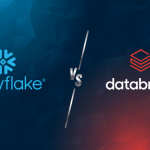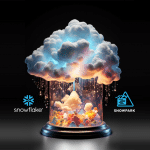Why this blog?
Selecting the right cloud platform is critical for optimizing your operations and managing costs. This blog distills essential differences between GCP, AWS, and Azure, offering key insights to help you choose the best fit for your business’s specific needs and priorities
Choosing the right cloud platform is a critical decision for modern businesses. Three giants dominate the cloud computing landscape: Google Cloud Platform (GCP), Amazon Web Services (AWS), and Microsoft Azure. Each platform offers a comprehensive suite of services, making the selection process a complex one. This article delves into a technical comparison of GCP, AWS, and Azure, highlighting their strengths, weaknesses, and ideal use cases.
Core Infrastructure Services
Compute: All three platforms offer a range of virtual machine (VM) options with varying configurations and pricing models. GCP’s Compute Engine boasts high-performance VMs with custom machine types optimized for specific workloads. AWS offers EC2 instances with a vast selection and on-demand scaling. Azure provides Virtual Machines with flexible deployment options and integration with on-premises infrastructure through Azure Stack.
Storage: Each platform provides object storage, block storage, and file storage solutions. GCP Storage offers high durability, scalability, and cost-effectiveness for various data needs. AWS S3 is the industry standard for object storage, known for its reliability and global reach. Azure Blob Storage excels in handling unstructured data and integrates seamlessly with other Azure services.
Networking: All three platforms offer robust networking capabilities with varying levels of complexity. GCP’s VPC (Virtual Private Cloud) is known for its ease of use and security features. AWS provides a wider range of networking options with a steeper learning curve. Azure offers a comprehensive networking stack with integration capabilities for hybrid cloud deployments.
- Google Cloud Platform Virtual Private Cloud (VPC)
- Amazon Web Services (AWS) VPC
- Microsoft Azure Virtual Network Documentation
Cloud-Specific Strengths
- GCP: GCP shines in containerization with its Kubernetes Engine, a managed, production-grade service for deploying and managing containerized applications. Additionally, GCP offers BigQuery, a serverless data warehouse for large-scale data analytics, ideal for businesses with massive datasets.
- AWS: AWS boasts the most extensive service portfolio, making it a one-stop shop for diverse cloud needs. From serverless computing with AWS Lambda to machine learning with Amazon SageMaker, AWS caters to a wide range of use cases. Additionally, its global reach and long-standing presence make it a trusted choice for many enterprises.
- Azure: Azure excels in hybrid cloud deployments with Azure Stack, enabling businesses to extend their on-premises infrastructure to the cloud. Furthermore, Azure offers strong integration with Microsoft products like Active Directory, streamlining identity and access management for organizations already invested in the Microsoft ecosystem.
Considerations for Choosing the Right Platform
- Cost: Pricing models vary significantly between the platforms. GCP offers pay-as-you-go pricing with sustained use discounts. AWS can be cost-effective for some services but complex pricing structures require careful analysis. Azure offers flexible pricing models including pay-as-you-go, reserved instances, and hybrid cloud benefits.
- Security: All three platforms prioritize security with robust compliance certifications. GCP leverages Google’s security expertise, offering features like Identity and Access Management (IAM) for granular access control. AWS provides a comprehensive security suite with services like AWS Security Hub for centralized monitoring. Azure integrates seamlessly with on-premises security solutions, making it a strong choice for security-conscious organizations.
- Technical Expertise: The complexity of each platform varies. GCP is known for its user-friendly interface and well-documented APIs. AWS has a vast learning curve due to its extensive service portfolio. Azure offers a balance between ease of use and advanced features, catering to both beginners and experienced users.
Matching Strengths to Needs in the Cloud Ecosystem
The ideal cloud platform depends on your specific needs and priorities. Consider factors like your budget, existing infrastructure, technical expertise, and desired functionalities. GCP offers a compelling choice for businesses seeking a cost-effective, container-friendly platform with strong data analytics capabilities. AWS remains the industry leader with its vast service portfolio and global reach. Azure excels in hybrid cloud deployments and caters seamlessly to organizations heavily invested in the Microsoft ecosystem. By carefully evaluating your requirements and leveraging the insights provided, you can make an informed decision and navigate the cloud frontier with the most suitable platform for your business journey.
FAQ’s
What is the best cloud platform for containerization?
Google Cloud Platform (GCP) excels in containerization with its Kubernetes Engine, offering a managed service for deploying and managing containerized applications efficiently.
How does AWS stand out in the cloud computing landscape?
AWS boasts the most extensive service portfolio, including serverless computing and machine learning, making it a versatile choice for a wide range of cloud needs.
Which cloud data platform is best for big data management?
Databricks and Snowflake both excel, with Databricks offering comprehensive data engineering and machine learning, and Snowflake providing scalable and secure data warehousing.
Which cloud platform is best for hybrid cloud deployments?
Microsoft Azure excels in hybrid cloud solutions with Azure Stack, enabling businesses to seamlessly extend their on-premises infrastructure to the cloud.
What makes GCP a strong choice for data analytics?
GCP offers BigQuery, a serverless data warehouse ideal for large-scale data analytics, providing powerful and scalable data analysis capabilities.
How does Azure integrate with Microsoft products?
Azure offers strong integration with Microsoft products like Active Directory, streamlining identity and access management for organizations using Microsoft solutions.
Which cloud platform provides flexible pricing models?
All three platforms offer flexible pricing, with GCP’s pay-as-you-go model, AWS’s diverse pricing structures, and Azure’s options including reserved instances and hybrid benefits.










